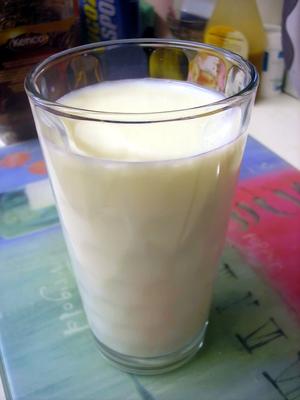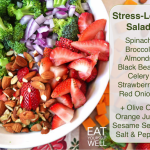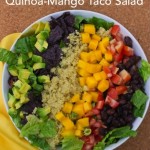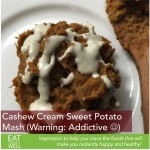Confused about all that you’ve been hearing about aspartame and milk? Me too … until I did a little digging. Now I’m not confused, I’m furious.
Background/Status
In 2009, the National Milk Producer’s Federation and the International Dairy Foods Association jointly submitted a petition to the FDA (you can see the information here) to allow the use of “any safe and suitable” sweetener as a flavoring ingredient for milk and 17 other dairy products … without (and this is the key) having to include prominent front-label notices that the milk is “reduced calorie” or “reduced-sugar,” and “artificially sweetened.” Note that manufacturers already can, and do, use the artificial sweeteners with the labeling. Also, they can and do use the unmodified “milk” label on milk with added caloric sweeteners like sugar and high-fructose corn syrup, as well as on unsweetened milk.
The FDA has just opened the petition “for public comment and data,” which is why you’re hearing about it now in the news.
Don’t be Fooled: What’s Actually at Stake
Presumably fueling the controversy is aspartame, which is surely one of the most well-known controversial ingredients around today … and I’ve written about that below. But as is so often the case, what we’re arguing about (aspartame) is actually just a distraction to the real, FAR FAR FAR more troubling issue: the dairy industry wants to add ingredients without clearly stating that they are there. Following is a verbatim (bolding is mine) snippet from the Federal Register’s request for comments:
“However, IDFA and NMPF argue that nutrient content claims such as ‘reduced calorie’ are not attractive to children, and maintain that consumers can more easily identify the overall nutritional value of milk products that are flavored with non-nutritive sweeteners if the labels do not include such claims.”
REALLY?? But oh … it gets worse:
“Further, the petitioners assert that consumers do not recognize milk—including flavored milk—as necessarily containing sugar. Accordingly, the petitioners state that milk flavored with non-nutritive sweeteners should be labeled as milk without further claims so that consumers can ‘more easily identify its overall nutritional value.'”
Let me try re-phrasing this: ‘Consumers (particularly children) aren’t smart enough to know that flavored milk contains sugar. It would just confuse them if we told them, and we don’t think they really want to know anyway, so we shouldn’t tell them. Instead, we should just quietly replace it with fake sugar, which we think will be better for them.’
Apparently the Dairy Industry thinks we can’t handle the truth.
Next on this slippery slope: ‘Consumers have an illogical fear of <rodent meat, insects, or anything else you can imagine>, unsupported by scientific evidence. Rather than troubling them with the details, food manufacturers should be able to include this valuable protein source without calling attention to it.’
Let’s Spread the Word
How do YOU feel about this petition … about the IDFA and NMPF statements above? PLEASE add your comments to this post, and share your thoughts with others.
Related Information
In include the following information because it is indeed related. But please help spread the word that it’s the least of the problem with the petition currently under consideration.
The Aspartame Controversy
One side maintains that aspartame is an “excitotoxin” or “neurotoxin” that causes brain changes that lead to ADD/ADHD symptoms, impaired learning/memory, brain tumors, and worse. I dug really hard, and while there is a lot of media noise around this, there are actually very few published reports that support this view. Many on this side accuse the powerful food lobby of “hiding” research that shows the neurological and other ill effects.
The other side points out that despite heavy assault from internet memes and hoax emails, asparatame has consistently passed the scrutiny of scientific studies, including ones by the National Cancer Institute, and has been determined to be safe for human consumption.
Personal note: For myself and my family, I’m sticking with molecules that have been around for long enough to understand long-term (and I mean generational) effects. Aspartame, introduced in 1981, doesn’t make the cut. Also, I’m negative on anything that supports further development of my sweet tooth – and at 200 times sweeter than sugar, aspartame is a taste bud bomb I don’t need.
What is Phenylalanine and how does it relate to this issue?
It has an awkward name, but it’s actually a naturally-occurring essential amino acid (amino acids are the building blocks of protein). It’s found in most animal products – meat, dairy, eggs, even human breast milk. And it is one of the breakdown products of aspartame.
The reason you see warnings about it is that about 1 in 15,000 people have a condition called Phenylketonuria, which prevents them from metabolizing phenylalanine; it instead builds up in their bodies. These warnings allow them to make safe food choices given their condition.






